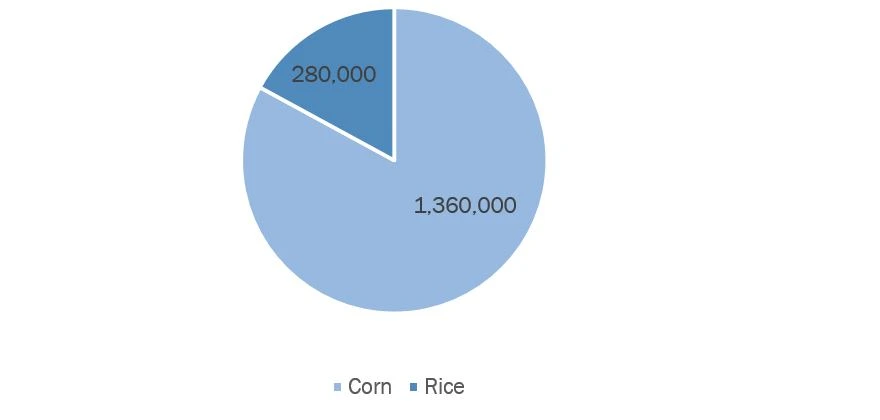How to Store and Preserve Vegetable Seeds for Future Planting
The age-old practice of storing and preserving vegetable seeds comes in handy for gardeners who want to grow their favourite cultivars year in and year out without spending too much money and energy. Apart from ensuring that there is a supply of seeds for the next planting seasons, this reduces the risk of extinction of genetic and heirloom varieties that are adapted to the local region. There are also benefits because being able to save the seeds enables one to plant only the best cultivars out of the many ones produced in the garden.
Moreover, it takes not only knowledge but also practical skills in different plant anatomy and methods of collecting data, as well as precautions in both the manipulations of seeds and their storage for successful seed preservation. Seeds have a defined durability and are constructed as live embryos covered with shells, which protect them from certain stresses – humidity, light, temperature, and others. The proper energy state of the storage environment is particularly necessary for the seeds health and preservation of germination ability in them.
Seed preservation trends have evolved from simple measures like drying, which was employed by early humanists, to complex systems that involve control of temperatures and humidity levels. These practices have become very important not only to individual horticulturists but also to the whole world in which there are seed banks, that are in the process of preserving food crops’ genetic diversity. By knowing the right techniques for harvesting, purifying, drying and preserving seeds in the garden, the planter can be more self-reliant and more environmentally friendly. This method has also increased the production of various plant and vegetable seeds in many regions, for instance, as per the USDA, China’s hybrid corn seed production in 2022/23 reached 1,360,000 metric tons (MT) a 31% increase from that of MY2021/22. Additionally, hybrid rice seed production increased to 280,000 MT in MY2022/23 a 5% growth compared to MY2021/22.
Figure 1: Hybrid Seed Production, Metric Tons, China, 2022 T0 2023

Source: USDA
Steps to store and preserve vegetable seeds for future planting are as follows:
- Collecting Seeds
- Cleaning Seeds
- Drying Seeds
- Storing Seeds
- Testing Seed Viability
Let’s discuss each one in detail.
1. Collecting Seeds
choosing and collecting the best seeds is the first and the most crucial step in preserving the seeds’ quality. This ensures that the material to be used in the beginning is of the highest quality and is viable.
The seeds should be gathered when fully matured. This is because quite often young seeds do not possess the required nutrients; within which they are expected to germinate. The sower should ensure that the seeds of most vegetables are left to ripe on the plant. Bean plants and pea plants, for example, should be salvaged when the pods are dry and rented.
Moreover, in the search for seeds, only the strong and healthy plants exhibiting the required traits and characteristics i.e. better yield, bigger size, taste, and pest resistance among others should be used. Though discouraging and wasteful, freezing seeds from diseased or weak plants will increase the chance of the next generations carrying such traits which is likely to hinder future growth. People should propagate natural selection by choosing the best plants and their seeds for planting to maintain or even improve the quality of the crops over time.
2. Cleaning Seeds
After gathering the seeds, the next step is to clean them. The cleaning approach depends on whether the seeds are from wet or dry fruits.
- For Dried Seeds:
Plants that produce commercially viable seeds such as lettuce, beans, peas and peppers produce seeds that are already dry when harvested. Very little cleaning is required as one simply has to remove the seeds from the peal or pod and there is no debris present. Nonetheless, the aspect of cleaning is crucial since irrespective of the time the seeds are meant to be kept, there are possibilities of mould or pest infections and therefore it is recommended that storage be cleaned.
- For Moisture-laden Seeds:
The seeds are found in the pulp of edible fruits such as tomatoes, cucumbers, and squash. The gel coating of such seeds needs to be cleared by use of fermentation. After the seeds have been removed from the fruit and placed in a container filled with water, allow it to sit at room temperature for two to four days. Once every day traces of water are removed from the container and fresh water is put in. After fermentation, the pulp and non-fertile seeds are pushed to the surface while the good seeds settle at the bottom. After rinsing them thoroughly and removing all the impurities, allow the seeds to dry on their own.
3. Drying Seeds
Drying is one of the most important steps to take in averting seed rot and mould in the course of their storage. Introduce moisture to seeds when they are being stored and their viability will be diminished.
The cleaned seeds should be spread out on a clean and dry surface such as a plate lined up with parchment paper or placed on a mesh tilted screen, in a warm, preferably ventilated space. Occasionally, toss them around to promote uniform drying. Paper towels can be protrusive as well to the seeds thus do not use them to cover the seeds. If these seeds are cooled and the end product is hard and brittle, it means that they have been thoroughly dried.
Moreover, a sower who lives in a humid atmosphere, or simply wants to be on the safe side, can use silica gel to assist in drying. Deposit the seeds in an airtight container along with silica gel sachets for some days. This helps in taking in any excess moisture which could compromise the viability of the seeds in storage.
4. Storing Seeds
To ensure the continued usefulness of seeds in the future, storage is essential. Seeds can endure moisture, changes in temperature, and even pest infestation provided they are stored under the appropriate conditions.
The ideal storage space for seeds can be described as free of moisture and relatively cool. The most recommended ambient temperatures are those ranging between 0 and 5 degrees Celsius, with very low relative humidity. In most cases, the sum of the temperature measured in Fahrenheit and that of the relative humidity expressed in percentage should be less than or equal to one hundred. Higher levels of humidity together with high temperature may activate the seeds to begin sprouting while still in storage or may encourage fungus in the seeds.
Moreover, the most important aspect of moisture prevention within containers is sealing. In order to store the seeds properly glass jars, plastic containers or even vacuum bags will do just fine. If more than one type is put in a jar, use paper bags or small envelopes for segregation purposes. In order to maintain the quality of the seeds, it is imperative that they are well sealed to prevent entry or moisture.
Furthermore, each container must be tagged with the seed type, varieties and date of collection. The efforts in planning the garden are less when the seeds and their viability are recorded. This is especially true for the seeds where there are several different types, it is easy to lose track of the seeds when they were collected and their current whereabouts.
5. Testing Seed Viability
Seed viability naturally declines over time. In order to maximize efficiency and avoid unnecessary expenditure of space and effort, it is important to determine the germination rate of one’s seeds prior to implantation.
To assess viability In the case of the germination test, a moist paper towel is continued after rolling up putting 10 seeds and placing them in a plastic bag to retain moisture. Then, place the contents in a warm place and check back after 7-10 days. If seven or more seeds were germinated, then the seeds are considered viable. Count the number of seeds that have sprouted. If not that many sprout, then the seeds may need to be replaced with more than the desired amount or planted with more seeds than necessary to achieve enough plants.
In conclusion, storing and preserving vegetable seeds is a worthwhile hobby for every gardener. This way gardening can be easier and cheaper and more importantly they will help to promote green practices. To achieve this: collect seeds from the best plants, properly clean and dry the seeds, store them in cool dry places, and perform germination tests on those seeds for further use. Thus, they guarantee sustainable healthy productive seeds for the next planting season. Where they can avoid buying seeds, maintain the biodiversity in their garden and enjoy cultivating plants from seeds well tended to over time.
Find some of our related studies:
- Seed Coating Materials Market: https://www.knowledge-sourcing.com/report/seed-coating-materials-market
- Global Seed Coating Market: https://www.knowledge-sourcing.com/report/global-seed-coating-market
- Wheat Seed Treatment Market: https://www.knowledge-sourcing.com/report/wheat-seed-treatment-market



